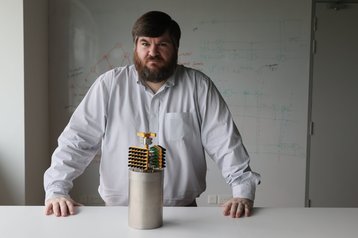Quantum software company Horizon is to deploy an on-premise quantum computer from Rigetti.
Horizon Quantum Computing, a company building software development tools for quantum computers, this week announced that it is establishing a quantum testbed at its Singapore headquarters.
The first system will be based on Rigetti Computing’s nine-qubit Novera quantum processor and OPX1000, a processor-based quantum controller from another vendor, Quantum Machines. The integrated system is expected to be installed by early 2025.
The company said the testbed will have the capacity to host multiple quantum computers from different vendors; by acquiring its own hardware, Horizon said it would gain full control over both hardware and software stacks and integrate quantum computing hardware with its software stack, Triple Alpha.
“We are taking the step of creating this testbed because we believe that tight integration between hardware and software is the shortest path to truly useful quantum computing,” said Joe Fitzsimons, founder and CEO at Horizon Quantum Computing.
Founded in 2018, Horizon is building programming tools for developing quantum computing software.
Subodh Kulkarni, CEO at Rigetti Computing, added: “We are thrilled that Horizon has selected the Novera QPU for their first quantum computing system. Establishing high-performing on-premise quantum computing capabilities is key for working towards useful quantum computing.”
Quantum Machines' approach has "always emphasized scalability, interoperability, and modularity, principles that resonate with Horizon’s Triple Alpha,” said Dr Itamar Sivan, the company's co-founder and CEO. “This collaboration with industry pioneers like Horizon and Rigetti not only showcases the adaptability and effectiveness of our processor-based OPX1000 controller in diverse setups, but also marks a significant step forward in the collective journey towards useful quantum computers.”
Rigetti launches quantum computer in UK
Rigetti also recently announced the successful deployment of a quantum computer in the UK, hosted at the HQ of its cryogenic dilution fridge provider, Oxford Instruments NanoScience. The companies have been working on the project for three years.
The 32-qubit Aspen computer was Rigetti’s first system deployed in the UK. The system was hosted at Oxford Instruments’ Tubney Woods facility using Oxford Instruments’ ProteoxLX dilution refrigerator.
Rigetti's Kulkarni said: “Completing this project, with the end result being a useful 32-qubit quantum computer, is an exceptional achievement for all of the project partners. It takes a world-class team to build and deploy a quantum computer.”
Matt Martin, managing director at Oxford Instruments NanoScience, added: “It has been an honor to collaborate with our long-standing partner Rigetti on this project, which brought the company’s first UK-based quantum computer.”
First announced in June 2022, the consortium also included the Quantum Software Lab at the University of Edinburgh, Phasecraft, and Standard Chartered Bank. The £10 million ($12.4m) project was backed by funding from the UK government’s Quantum Technologies Challenge, led by UK Research & Innovation (UKRI).
Harriet van der Vliet, product segment manager, quantum technologies, Oxford Instruments, previously told DCD that the company did not have an on-site data center prior to the installation, and still doesn’t have what we’d consider a traditional white space data hall.
“Our factory is not the equivalent of a colocation facility," she said. "We provided the fridge and the facility as part of Innovate UK funding so that Rigetti and its partners Phasecraft, Standard Chartered, and others could work on their applications for quantum computing.
“We had to learn all about having a commercial system with the correct connections to the cloud, backup generators, backup chillers, which you don't necessarily think about in a lab,” she says. “If the power goes out in a university, you just say, ‘okay, I'll warm up and then I'll cool down the next day.’ But if that happens in a data center or system that's connected to the cloud for customers, that's absolutely not okay.”
When asked if the company would look to host more quantum computers in the future or if this was a one-off, van der Vliet said that there “is always the opportunity to do lots more” in the space.
“We learned about building in redundancy, such as backup generators, chillers, etc. so that the system had good uptime for the customer," she added. "It was great working with Rigetti to host their first quantum computer in Europe.”
The system has been made available over the cloud to Rigetti’s UK partners via the company’s Quantum Cloud Services cloud computing platform.
Rigetti recently announced that it won a UKRI Competition to deliver a 24-qubit quantum computing system to the National Quantum Computing Centre at its Harwell campus outside Didcot, Oxfordshire.







